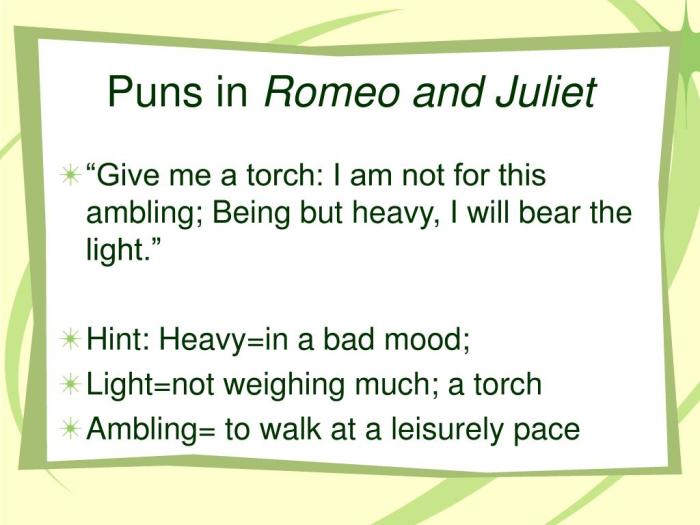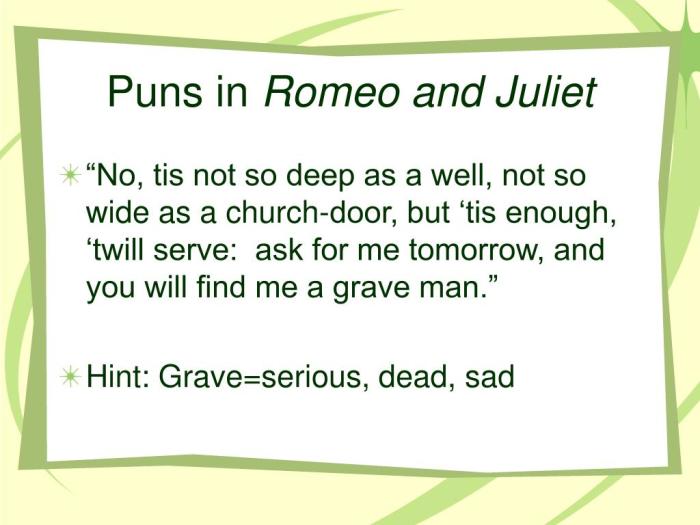Pun in romeo and juliet act 1 – Puns in Romeo and Juliet Act 1 are not just clever wordplay; they are powerful tools that shape the play’s tone, reveal character traits, create dramatic irony, and explore the play’s central themes.
These puns are not merely linguistic gymnastics; they are integral to understanding the play’s deeper meanings and appreciating its tragic beauty.
Puns in Act 1 of Romeo and Juliet
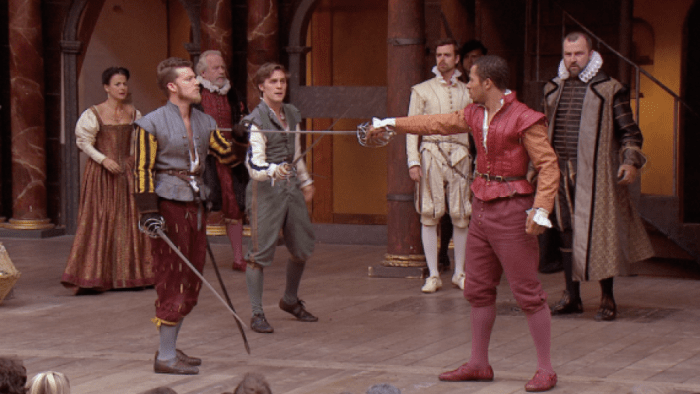
Puns, a play on words that utilize the multiple meanings of a term or phrase, are employed throughout Act 1 of Romeo and Juliet. These puns contribute to the play’s overall tone and atmosphere, adding a layer of humor and wordplay to the dramatic events.
One significant pun occurs when Romeo declares his love for Rosaline, stating, “Did my heart love till now? For I ne’er saw true beauty till this night.” The word “true” carries a double meaning here. On one level, it refers to Rosaline’s physical beauty.
However, it also alludes to the fact that Romeo’s previous infatuations were not genuine love.
Another pun is used when Mercutio describes Romeo’s love for Rosaline as “a love that is not love.” This play on words highlights the paradoxical nature of Romeo’s feelings. While he believes he is deeply in love with Rosaline, his emotions are superficial and based on her appearance rather than a genuine connection.
These puns not only provide comedic relief but also foreshadow the play’s tragic events. The puns on love and beauty hint at the fleeting and superficial nature of Romeo and Juliet’s relationship, which will ultimately lead to their downfall.
The wordplay in Romeo and Juliet Act 1 is like a chemistry experiment—it’s all about balancing acids and bases. For example, when Romeo says, “Did my heart love till now? For I ne’er saw true beauty till this night,” he’s using a pun to compare Juliet to a chemical base that neutralizes his acidic heart.
If you’re looking for more examples of wordplay in Romeo and Juliet, check out acids and bases pogil answers for a detailed analysis.
The Role of Puns in Character Development
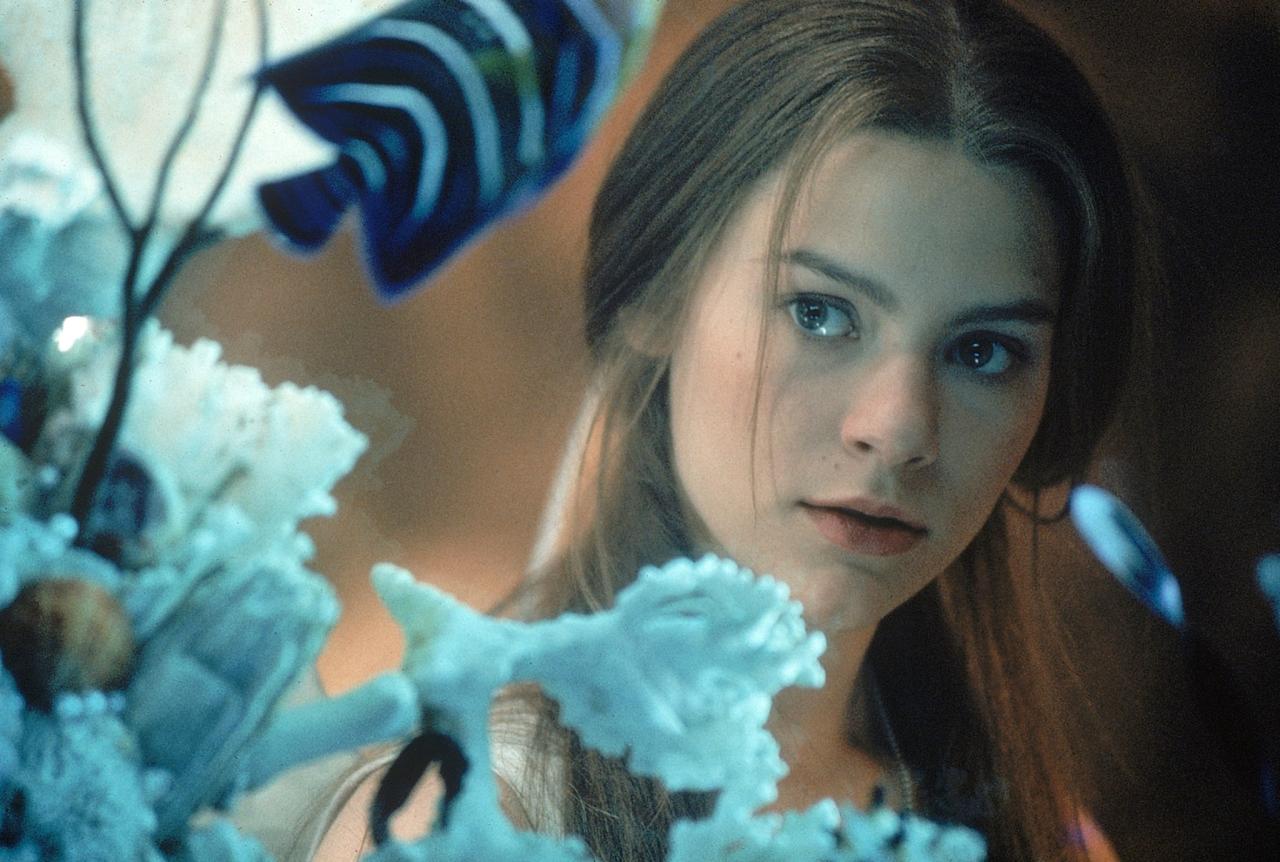
Puns in Romeo and JulietAct 1 serve as linguistic devices that illuminate character traits, motivations, and the play’s central conflict. By analyzing specific instances of wordplay, we can gain insights into the characters’ personalities and the dynamics that shape their interactions.
Romeo’s Puns
Romeo’s puns often reflect his youthful exuberance and romantic idealism. For example, when he first encounters Juliet, he remarks, “Did my heart love till now? For I ne’er saw true beauty till this night.” This pun on “heart” and “hart” (deer) conveys his sudden and intense infatuation.
Similarly, his use of the phrase “star-crossed lovers” to describe his and Juliet’s forbidden love highlights his belief in the power of fate and the obstacles that stand in their way.
Mercutio’s Puns
Mercutio’s puns are more biting and sarcastic, reflecting his cynical nature and his disapproval of Romeo’s romanticism. When Tybalt challenges Romeo to a duel, Mercutio interjects, “Tybalt, the reason that I have to love thee doth much excuse the appertaining rage to such a greeting.”
Here, Mercutio’s pun on “reason” and “raisin” suggests that Tybalt’s anger is as inconsequential as a dried grape.
The Nurse’s Puns
The Nurse’s puns are often bawdy and humorous, revealing her earthy nature and her close bond with Juliet. When Juliet confides in her about her love for Romeo, the Nurse responds, “Now, by my maidenhead, at twelve year old, I had then laid forty to one a fortnight and you had a green goose to pluck.”
This pun on “green goose” (an immature goose) alludes to Juliet’s youthful innocence and the Nurse’s own sexual experiences.
Conclusion
The use of puns in Romeo and JulietAct 1 is a literary device that enriches the play’s character development. By analyzing the puns employed by specific characters, we gain insights into their personalities, motivations, and the conflicts that drive the plot.
Puns and Dramatic Irony
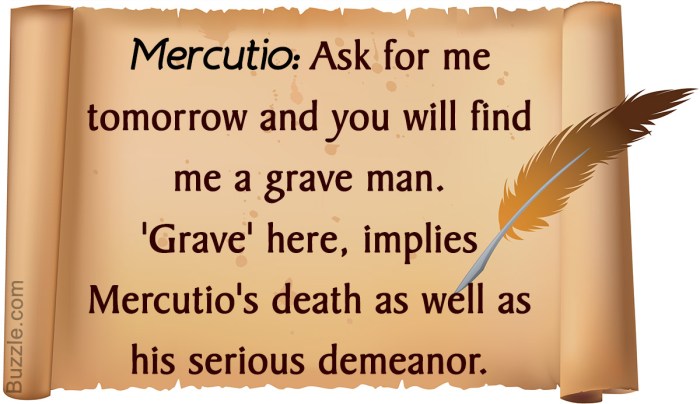
Puns in Act 1 of Romeo and Juliet often create instances of dramatic irony, where the audience is aware of a meaning or implication that the characters are not. This contributes to the play’s sense of foreshadowing and suspense, as the audience anticipates the consequences of the characters’ actions and misunderstandings.
Juliet’s “Light” Reference, Pun in romeo and juliet act 1
In Act 1, Scene 5, Juliet declares her love for Romeo with the line, “My bounty is as boundless as the sea, / My love as deep; the more I give to thee, / The more I have, for both are infinite.”
This line contains a pun on the word “light,” which can refer to both physical illumination and love. While Juliet intends to express the boundless nature of her love, the audience also understands the irony that her love for Romeo is a “light” that will ultimately lead to her tragic end.
The Impact of Puns on the Play’s Themes: Pun In Romeo And Juliet Act 1
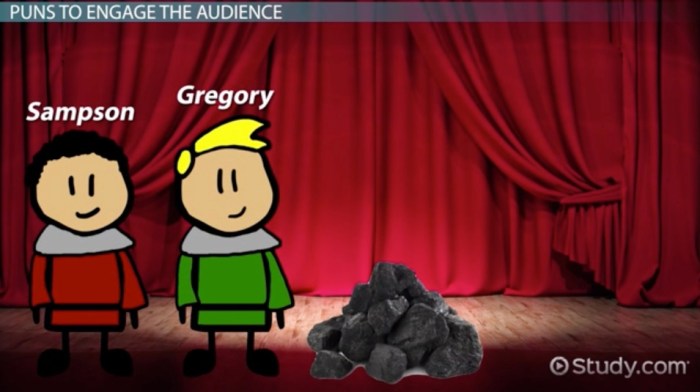
Puns play a significant role in shaping the play’s themes of love, fate, and violence. They highlight the central paradoxes and contradictions that drive the plot, underscoring the play’s tragic nature.
Love and Fate
Puns on words like “star-crossed” and “fortune” emphasize the interplay between love and fate. The lovers’ belief in their destiny is both a source of hope and a foreshadowing of their tragic end. The puns also suggest that love is a force beyond human control, subject to the whims of fate.
Violence and Parody
Puns on violence, such as “cut my mistress’ throat” and “thrust thy knife,” create a sense of irony and parody. They highlight the play’s exploration of violence as both a destructive and a potentially liberating force. The puns also reveal the characters’ inability to fully comprehend the consequences of their actions.
Tragic Irony
Puns contribute to the play’s tragic irony by creating a gap between what the characters say and what the audience knows. For example, Romeo’s pun on “fair” in the prologue foreshadows Juliet’s death. The puns also emphasize the characters’ blindness to the true nature of their situation, leading to their tragic downfall.
Query Resolution
What is the significance of puns in Romeo and Juliet Act 1?
Puns in Act 1 establish the play’s tone, reveal character traits, create dramatic irony, and explore the play’s themes.
How do puns contribute to character development in Act 1?
Puns reveal character traits and motivations, such as Mercutio’s wit and Romeo’s romantic idealism.
What is an example of dramatic irony created by a pun in Act 1?
When Romeo says, “Did my heart love till now? For I ne’er saw true beauty till this night,” the audience knows that Juliet is a Capulet, Romeo’s sworn enemy.
